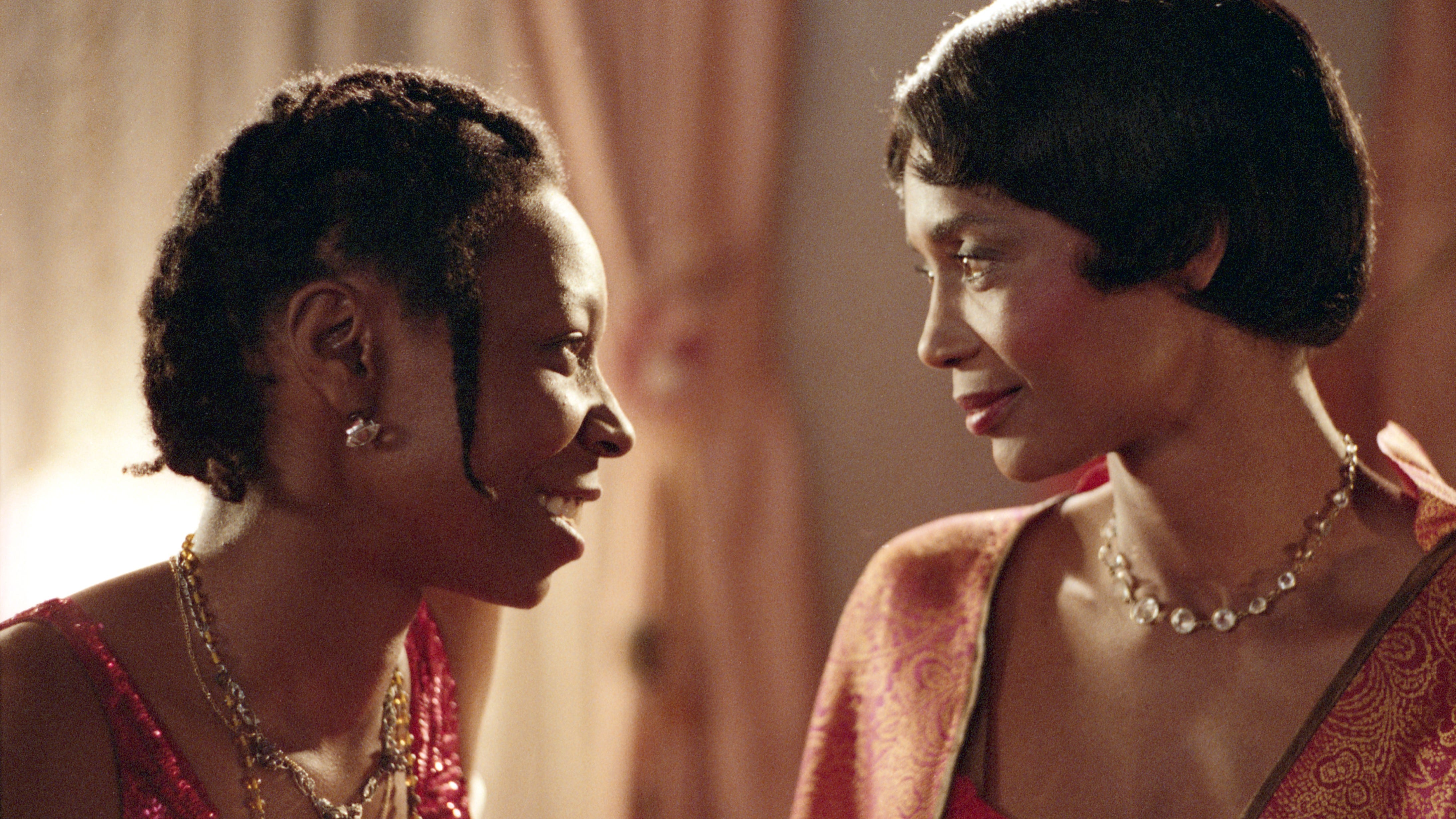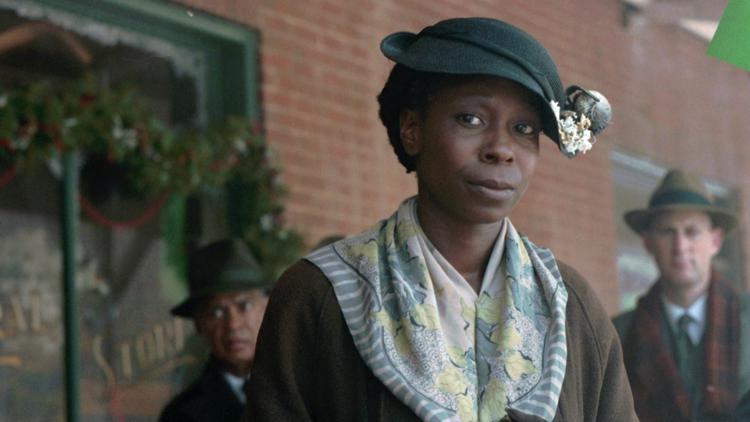← Back to Reviews
in
The Color Purple
Steven Spielberg shocked Hollywood when he decided to bring The Color Purple to the screen in 1985 and what resulted was a controversial and emotionally charged epic spanning almost 30 years that riveted this reviewer to the screen thanks to a richly complex screenplay carefully crafted for the screen by Spielberg's uncanny directorial eye, not to mention two of the most impressive film debuts in cinema history.

Based on the Pulitzer Prize winning novel by Alice Walker (which I never read), the primary story here revolves around Celie Walker, a young black girl at the turn of the century who has given birth to two children before her 15th birthday (fathered by her father), who sells her to a sexist beast who Celie refers to as "Mister", who treats her as a slave and prostitute. Mister and Celie's misery becomes more complicated with the arrival of Shug Avery, a trampy nightclub entertainer who Mister has loved for years. Then there's the story of Sophia, the strong-willed wife of Mister's wimpy son Harpo, who refuses to let Harpo treat her the way Mister treats Celie, sending her on an equally emotional journey as well.

On the surface, this story looks like the last thing that the director of some of our biggest box-office champions should tackle and something tells me this is exactly why Spielberg wanted to do it. It's not just the idea of a white director mounting a story with all black characters, but shining a light on a lot of unpleasant subject matter for a movie that have been addressed before but rarely with the candor they are here. Incest, lesbianism, rape, and, domestic abuse are given a canvas unlike anything I have ever seen before, thanks to Menno Meyjes rich adaptation of Walker's novel that doesn't soft soap anything it brings up, blends different stories to maximum effect and just when we think a plot thread has been forgotten about, it is sewn up.

Spielberg's care about this story is evident in every frame. Loved that scene when Mister is on the horse attempting to rape Nettie and that scene at the dinner table at the climax of the film where Celie finally declares her independence is glorious.

This masterpiece was nominated for 11 Oscars, including Best Picture and, shockingly, didn't win a single statue...and Spielberg wasn't even nominated. Whoopi Goldberg and Oprah Winfrey both received Oscar nominations for their powerhouse film debuts as Celie and Sophia, respectively and Danny Glover turns in the performance of his career as the detestable Mister. Also loved Desreta Jackson as a teenage Celie. Spielberg took a story that was probably believed impossible to film and created a breathtaking film that had me on the verge of tears for most of the running time. Adapted into a Broadway musical in 2005.
Steven Spielberg shocked Hollywood when he decided to bring The Color Purple to the screen in 1985 and what resulted was a controversial and emotionally charged epic spanning almost 30 years that riveted this reviewer to the screen thanks to a richly complex screenplay carefully crafted for the screen by Spielberg's uncanny directorial eye, not to mention two of the most impressive film debuts in cinema history.

Based on the Pulitzer Prize winning novel by Alice Walker (which I never read), the primary story here revolves around Celie Walker, a young black girl at the turn of the century who has given birth to two children before her 15th birthday (fathered by her father), who sells her to a sexist beast who Celie refers to as "Mister", who treats her as a slave and prostitute. Mister and Celie's misery becomes more complicated with the arrival of Shug Avery, a trampy nightclub entertainer who Mister has loved for years. Then there's the story of Sophia, the strong-willed wife of Mister's wimpy son Harpo, who refuses to let Harpo treat her the way Mister treats Celie, sending her on an equally emotional journey as well.

On the surface, this story looks like the last thing that the director of some of our biggest box-office champions should tackle and something tells me this is exactly why Spielberg wanted to do it. It's not just the idea of a white director mounting a story with all black characters, but shining a light on a lot of unpleasant subject matter for a movie that have been addressed before but rarely with the candor they are here. Incest, lesbianism, rape, and, domestic abuse are given a canvas unlike anything I have ever seen before, thanks to Menno Meyjes rich adaptation of Walker's novel that doesn't soft soap anything it brings up, blends different stories to maximum effect and just when we think a plot thread has been forgotten about, it is sewn up.

Spielberg's care about this story is evident in every frame. Loved that scene when Mister is on the horse attempting to rape Nettie and that scene at the dinner table at the climax of the film where Celie finally declares her independence is glorious.

This masterpiece was nominated for 11 Oscars, including Best Picture and, shockingly, didn't win a single statue...and Spielberg wasn't even nominated. Whoopi Goldberg and Oprah Winfrey both received Oscar nominations for their powerhouse film debuts as Celie and Sophia, respectively and Danny Glover turns in the performance of his career as the detestable Mister. Also loved Desreta Jackson as a teenage Celie. Spielberg took a story that was probably believed impossible to film and created a breathtaking film that had me on the verge of tears for most of the running time. Adapted into a Broadway musical in 2005.
